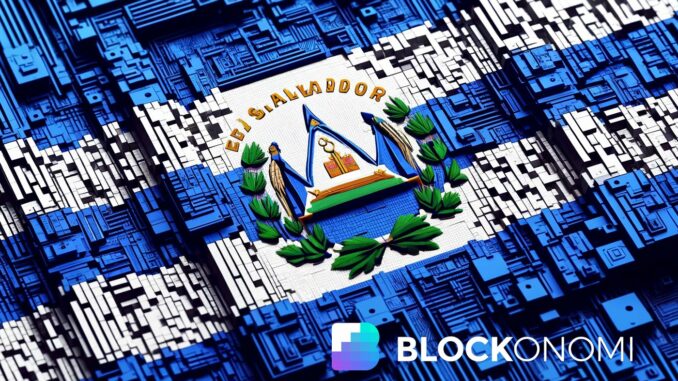
Despite the controversies surrounding El Salvador’s Bitcoin adoption, the country’s commitment to Bitcoin shows no signs of slowing down.
El Salvador has established its first proof-of-reserves website to monitor the country’s Bitcoin (BTC) Treasury, according to an X post published by Bitcoin Office, an account managed by the El Salvador government.
El Salvador now has its own @mempool space where anyone can check out our #bitcoin treasury holdings.
See details in the next post. pic.twitter.com/PEpVemHoFO
— The Bitcoin Office (@bitcoinofficesv) May 12, 2024
The new platform publishes the balance history of the country’s BTC holdings, changes over the past few days, and more. This move is considered El Salvador’s efforts to show transparency.
The website also shows that the country has boosted its Bitcoin holdings by 7 BTC worth over $438,000 in the past week while adding a total of 31 BTC worth $1.94 million over the past 30 days.
With more transparency, the Bitcoin revolution in El Salvador is taking on a new role. It is an example of how governments can create fiscal trust.
BTC Treading Water
With the current BTC trading price at around $62,700 per CoinGecko’s data, El Salvador BTC reserves now sit at 5,748 BTC, with an estimated value of approximately $360 million.
The ongoing BTC acquisitions are part of the country’s plan to add 1 BTC to its Treasury every day. Despite the recent correction in Bitcoin’s price and the crypto market, the country’s commitment has been unchanged so far.
President Nayib Bukele announced his plans to buy one BTC per day in December 2022. With the DCA strategy, El Salvador’s BTC holdings currently show over 45% unrealized gains. The average purchase price is around $43,000.
On the positive side, El Salvador’s move towards Bitcoin could be understood through the huge opportunities it presents.
Venture capitalist Tim Draper, speaking to Cointelegraph, said these holdings could bolster the nation’s finances. Draper believes that if the price of Bitcoin reaches $100,000, El Salvador could achieve financial independence and clear its debts with the International Monetary Fund.
Numerous crypto analysts predict a surge in Bitcoin’s price during the 2024-2025 bull cycle. Analysts at Standard Chartered predict that Bitcoin is on track toward $150,000 by the end of the year and potentially hits $200,000 by the end of 2025.
El Salvador is a BTC Pioneer
Under the leadership of President Nayib Bukele, also known as a Bitcoin advocate, El Salvador has become one of the active participants in the Bitcoin ecosystem.
In 2019, Bitcoin’s supporters were pleased when the Congress of El Salvador approved President Nayib Bukele’s proposal to embrace cryptocurrency, which makes this Central American country the first to legalize Bitcoin.
However, the decision drew widespread criticism sooner when Bitcoin’s value plummeted from its all-time high of $69,000 in November 2021, following the collapse of the FTX exchange. As a result, El Salvador’s Bitcoin holdings saw major losses, dropping as low as $16,000 during the bear market.
As a result, the use of Bitcoin was doubted especially when the International Monetary Fund (IMF) urged the Government to reverse the stated approval since Bitcoin rapidly lost its value in January 2022.
Regardless of the struggles, the Bitcoin Law was passed by the Legislative Assembly of El Salvador on 9 June 2021, and the legal status of Bitcoin remains unchanged.
The country’s leaders believed that by leveraging this innovative approach, a new era of financial accessibility and flexibility might be built and flourish sooner than expected.
In addition to BTC adoption, El Salvador also offers policies that benefit crypto businesses. In March this year, President Nayib Bukele announced that international investments and money transfers do not have to pay income tax. Under the new rules, businesses will only pay 30% income tax on their profits.
Ernesto Castro, Salvadoran President of the Legislative Assembly, said the reform would revolutionize the country’s monetary policy and aim to attract global investments. The change came after Nayib Bukele’s reelection in February.
Additionally, the new tax policy also seeks to encourage Salvadorans to return and contribute to the country’s development.






 Bitcoin
Bitcoin  Ethereum
Ethereum  Tether
Tether  XRP
XRP  USDC
USDC  TRON
TRON  Lido Staked Ether
Lido Staked Ether  Dogecoin
Dogecoin  Figure Heloc
Figure Heloc
Be the first to comment